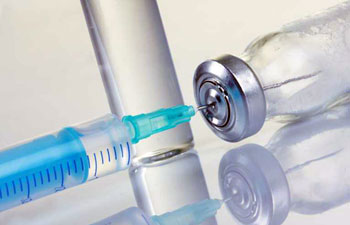- Home
- Editorial
- News
- Practice Guidelines
- Anesthesiology Guidelines
- Cancer Guidelines
- Cardiac Sciences Guidelines
- Critical Care Guidelines
- Dentistry Guidelines
- Dermatology Guidelines
- Diabetes and Endo Guidelines
- Diagnostics Guidelines
- ENT Guidelines
- Featured Practice Guidelines
- Gastroenterology Guidelines
- Geriatrics Guidelines
- Medicine Guidelines
- Nephrology Guidelines
- Neurosciences Guidelines
- Obs and Gynae Guidelines
- Ophthalmology Guidelines
- Orthopaedics Guidelines
- Paediatrics Guidelines
- Psychiatry Guidelines
- Pulmonology Guidelines
- Radiology Guidelines
- Surgery Guidelines
- Urology Guidelines
Vaccination against rotavirus may prevent type 1 diabetes in some children: PLOS Pathogens

Rotavirus infection may have a role in the development of type 1 diabetes, according to a front matter article published in the open-access journal PLOS Pathogens by Leonard C. Harrison of the University of Melbourne in Australia, and colleagues.This implies that Vaccination against rotavirus may have the additional benefit in some children of being primary prevention for type 1 diabetes
Rotavirus (RV) remains the major cause of infantile gastroenteritis worldwide, although the advent of vaccination has substantially decreased associated mortality [1]. a 15% decrease in the incidence of type 1 diabetes (T1D) in Australian 0–4-year-old children following the introduction of RV vaccination [2, 3], This finding complements human and animal studies implicating rotavirus in the development of type 1 diabetes in genetically susceptible children.
A Finnish population-based cohort study of 495 T1D cases born in 2009 and followed for 5 years was inconclusive regarding an association between RV vaccination and T1D or celiac disease risk [27], but it examined a relatively small number of cases over a short time frame. In addition, the effect of RV vaccination could vary by geographical location due to genetic and environmental differences. Environmental factors promoting the increase in T1D incidence on particular genetic backgrounds [23] are likely to be ubiquitous and multiple.
In the article, Harrison and colleagues begin by reviewing molecular evidence supporting their hypothesis and point out the association between rotavirus infection and serum islet autoantibodies. They also discuss results indicating that rotavirus infection induces pancreatic pathology, as well as environmental factors that promote the rise in the incidence of type 1 diabetes. Finally, they review population-level data suggesting that rotavirus vaccination may be associated with a decrease in the incidence of type 1 diabetes. According to the authors, it will be important to identify which children are most likely to be protected by rotavirus vaccination. Moreover, future studies should aim to reveal disease mechanisms and directly demonstrate whether rotavirus infects human pancreas prior to the onset of islet autoimmunity or type 1 diabetes.
Harrison concludes, "Vaccination against rotavirus may have the additional benefit in some children of being primary prevention for type 1 diabetes."
For more details click on the link: DOI: 10.1371/journal.ppat.1007965

Disclaimer: This site is primarily intended for healthcare professionals. Any content/information on this website does not replace the advice of medical and/or health professionals and should not be construed as medical/diagnostic advice/endorsement or prescription. Use of this site is subject to our terms of use, privacy policy, advertisement policy. © 2020 Minerva Medical Treatment Pvt Ltd